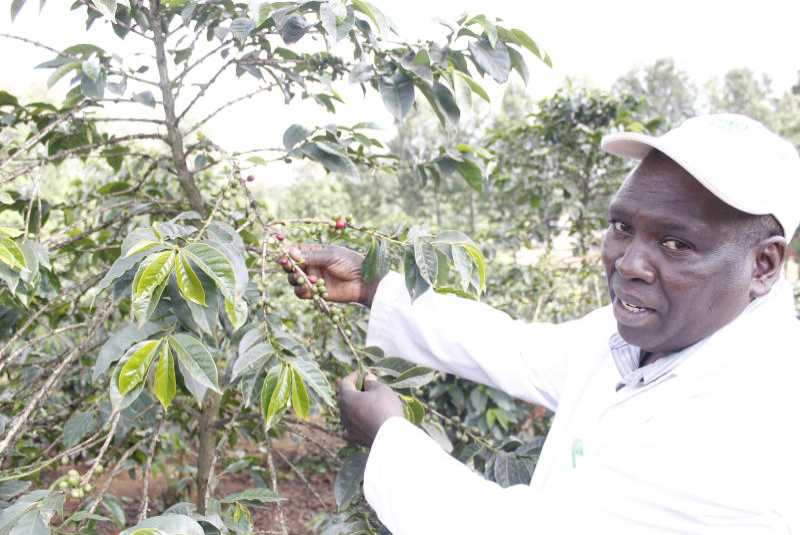×
The Standard e-Paper
Kenya’s Boldest Voice

David Wairagi, the Manager at the Othaya Farmers Factory in Nyeri shows a Coffee plantation, they process coffee and do value addition. Gov. Kahiga said there was need to instil integrity in co-operatives that are managing farmers’ affairs.[File, Standard]
Twenty-three coffee farmers’ co-operative societies are being audited by a special team from the national and county cooperative departments.